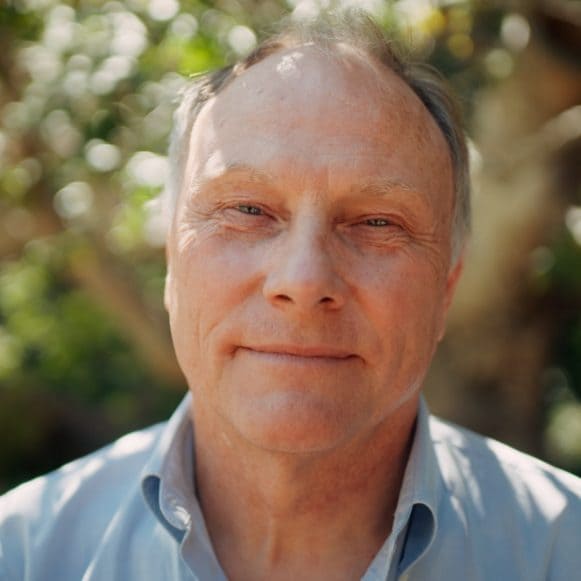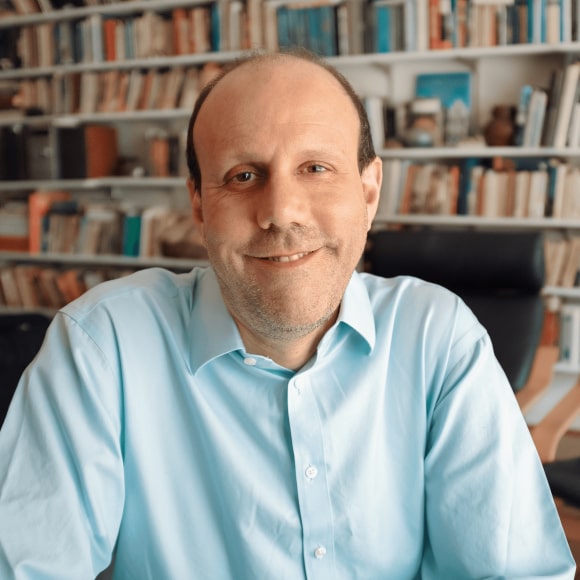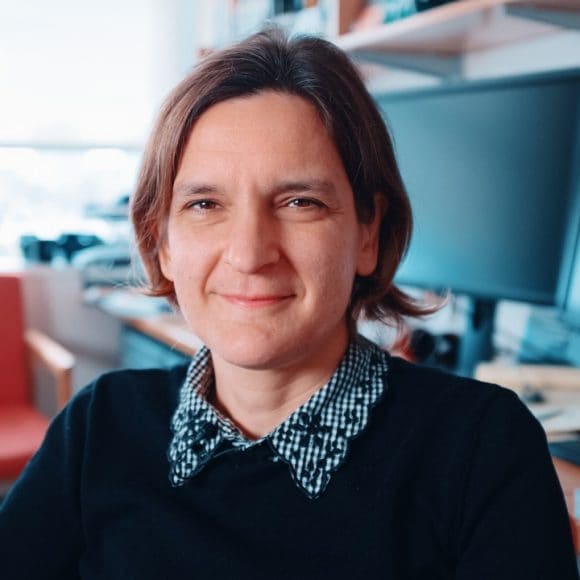What are natural experiments and how can they be used to study causal effects?
What are natural experiments and how can they be used to study causal effects?
Explaining the work of an economist can be tricky at times. Perhaps they’ve developed a new methodology or theory where language doesn’t yet exist, or sometimes it combines so many subfields that there’s no concise way to put it into words. For Guido Imbens, who won the prize for his work on studying casual effects often through natural experiments, it remains his daughter who – in his mind – put it best.
“My daughter Sylvia said it very well when she said that we were doing experiments without really doing experiments and that's exactly right,” says Imbens. “These experiments were not designed to help us answer particular questions. They were designed to serve a very different purpose, but they helped us uncover these causal relationships and analyze them as if they were experiments that were actually designed to help us.”
What is the relationship between correlation and causation and why is it important to distinguish between them?
What is the relationship between correlation and causation and why is it important to distinguish between them?
The relationship between cause and effect is, of course, central to economics. It aims to explore and answer why people do the things they do, and what happens when a specific decision is made. Imbens has long explored correlation and causation and has spent much of his career proving his methods behind determining correlation.
“When we're making decisions, it's always about what would happen if we made that decision,” says Imbens. “If I have a headache, I may take an aspirin or not. I'm not interested in the correlation there. I'm interested in what would actually happen if I took the aspirin. Similarly in economics, we see people going to school and getting good jobs. But really what we're interested in is what is the causal effect of getting more education, of getting the graduate degree, finishing high school, getting a PhD. We want to know what would have happened had people not done that, had people not made that decision.”

Guido W. Imbens
Guido W. Imbens
The Sveriges Riksbank Prize in Economic Sciences in Memory of Alfred Nobel, 2021
At a glance
At a glance
Born: 1963, Geldrop, Netherlands
Field: Econometrics
Awarded: The Sveriges Riksbank Prize in Economic Sciences in Memory of Alfred Nobel, 2021 (shared)
Prize-winning work: Methodological contributions to the analysis of causal relationships
Summer gig: Interned at Facebook for a few months in 2014
Check mate: Was an avid Chess player as a child, often playing for four or five hours at a time
Nobel Museum contribution: Laundry detergent because many of his most inspiring conversations took place at a laundromat while in university
Correlation and Causation
Has this question inspired you?
Get the latest Nobel perspectives delivered to you.
Nature’s Natural Experiments: How did Guido Imbens use lotteries to study causal relationships?
Nature’s Natural Experiments: How did Guido Imbens use lotteries to study causal relationships?
There are instances where randomized controlled trials are straightforward, for example in medical settings. In economics, it’s not as simple to conduct double blind randomized experiments. In these situations, economists have to rely on observational studies. Disentangling correlation and causation in a credible way in this manner is precisely what landed Imbens the highest honor in his field. In other words, sometimes when science needs help, nature steps in.
Imbens began looking at things like lotteries as the basis for casual relationships work. Rather than say, not admit certain students into medical school for the sole purpose of studying what the effects later in life would be – something not possible and unethical – Imbens looked for areas where there was already some noise and randomness in the data. In the Netherlands, for example, the government limits the number of spots open for people wanting to study medicine and then uses a lottery to allocate the spots. He also researched the effects of universal basic income programs that utilize lotteries to determine who gets money.
“In these cases, there’s idiosyncrasies in the way the choices are restricted and the way treatments are assigned,” says Imbens. “One way we can use the assignment mechanism is to compare people on either side of the thresholds as a way of getting comparable groups without being subject to the type of biases we would normally be subject to.”
In many of these cases, they aren’t explicit lotteries, but rather something changes that allows researchers to find the facts they’re interested in. For the universal basic income research however, they teamed up with the lottery in Massachusetts and asked if they were interested in collaborating. They surveyed people who had won the state lottery for half a million dollars. The way it worked in the state is that winners would receive one check for $25,000 every 20 years, a system that mimics what a universal basic income would be.
They focused on people who had won six years earlier and then looked at their annual earnings and were able to compile very credible estimates of what the effect was of winning the lottery.
“We saw that, in fact, these people winning the lottery were not all that different from the rest of the population,” says Imbens. “We did see that they ended up working a little less often and ended up retiring a little earlier. But there were no dramatic changes in how much they worked. It was on the order of five to 10 percent the money they won would be spent reducing their labor supply.”
When Nature Steps in: Natural Experiments
How did Guido Imbens and his colleagues contribute to the development of credible causal inference?
How did Guido Imbens and his colleagues contribute to the development of credible causal inference?
Credible is perhaps the single most important word in Imbens’ vernacular and one that has defined his career.
“Economists have always tried to find ways outside of experiments where we can credibly establish causal inference. And the key really is to do that in a credible way,” he says. “And so, the natural experiments literature built on some of the ideas that had been around before, but really focused on trying to get credible causal facts in settings where there were important questions, and we couldn't do regular experiments.”
When Imbens and his colleagues began working on these problems, there was a sense that randomized experiments within economics were simply hard to do. There had been examples done in the seventies and eighties, largely done on labor market programs, but there was a lot of resistance around conducting these experiments.
Economists have always tried to find ways outside of experiments where we can credibly establish causal inference.
“You would have unemployed people and you would tell them, okay, you have to come in and maybe you'll get some classroom training, and maybe it will help you find a job, but maybe not.
It's hard to motivate people to show up for this because they know they may not actually get any services,” says Imbens. “So administrators don't like these randomized experiments and whenever they were done, they were very expensive. And even then, they didn't have enough power to really find the effects that they were looking for.”
“At that time, Angrist, Card, and I were thinking that even if it's possible to do these experiments, we're not going to be able to estimate the effect of going to college by doing a randomized experiment,” he continues.
The contribution of fellow Laureates Abhijit Banerjee, Esther Duflo, and Michael Kremer was to conduct experiments on a smaller scale, often in settings where people hadn’t considered doing experiments. Imbens says that not only were they successful in doing that, they set up an entire infrastructure that created a new wave of experiments in development economics and beyond.
“These two lines of research were very much complementary,” he says. “Whenever you can do experiments, they’re great. They’re really the best solution. But that doesn't take away from the fact that there are going to be lots of cases where you can't do them, and you need to somehow make do with observational data. Finding ways in which you can still get credible estimates is going to be very important for those settings.”
The Credibility Revolution
Parts of economics sometimes end up being very esoteric, but I think a large part of economics ultimately gets pulled back by questions that come up in the real world.
What impact does the tech industry have on economic research?
What impact does the tech industry have on economic research?
For Imbens, the close proximity that Stanford has to Silicon Valley has been not only exciting, but it’s also become a source of inspiration. The world’s most influential tech companies are only a bike ride away, which means that even a general econometrics conference will have a strong tech presence. There’s a mutual interest between both sectors – tech and economics – and many lessons that are transferable between the two. Imbens was so curious about what the tech companies were exploring, building and testing that he even spent a summer interning at Facebook when he moved to the area just to see the kind of problems they were interested in.
“It’s a very inspiring setting,” says Imbens. “For me, the sweet spot is when there’s questions there that, to me, seem related. They have the same essence as some of the questions I've seen in other cases. They’re using a lot of the methods that I’ve been involved in developing. That motivates me to work on methods where I try to figure out solutions for problems that have some generality but also in the type of experiments that some of the private sector does.”
Tech companies often find that the work that’s happening within economics is very interesting and relevant to what they’re doing, and many tech companies are hiring their own in-house economists, according to Imbens.
“I’ve been doing some work with Susan Athey and Raj Chetty trying to figure out how to combine short term experiments with long term observational data,” says Imbens. “You can't really do experiments that last 30 years, so you need to figure out a way of combining the results from experiments where you may get four or five-years’ worth of data with other observational study methods to figure out what the implications are for the long term. All these things are very directly relevant in many areas of empirical economics and have been incredibly influential in policy circles.”
“Parts of economics sometimes end up being very esoteric,” Imbens continues. “But I think a large part of economics ultimately gets pulled back by questions that come up in the real world. And one of the things that makes being an economist very exciting here in the US is that in fact there is so much interaction between policy circles and academic economists as well as non-governmental organizations and the private sector.”
The Spillover Between Tech and Economics
How did Guido Imbens' accidental career choice become a Nobel Award-winning success?
How did Guido Imbens' accidental career choice become a Nobel Award-winning success?
For all of his success and accolades, Imbens still finds it amusing that his own path to economics was random in nature.
“It's kind of funny for me to think about the fact that I chose to do econometrics when I was in high school in the Netherlands,” he says. “I made that choice without really having much of a sense of what it would be about, and it turned out to be an incredibly lucky choice.”
Even as the field has evolved, he’s remained in the area for his entire career and with more changes on the horizon, he’s as interested in economics as ever.
“Economics at the moment is just a very interesting field because it gives you a lot of opportunities,” he continues. “You can do so many different things nowadays. Economists can analyze data, think about incentives, and about economic behavior. It’s such a versatile field and because of that, you need to be able to interact with lots of different disciplines. Our field is well situated to allow for really interesting interdisciplinary work, and I think that part will continue to be the case for the foreseeable future.”
People Also Asked
Why do countries have to find better ways to grow?
Hear Michael Spence's view on how countries can grow sustainably while having a long-lasting positive impact.
More Nobel Laureate stories
Has this question inspired you?
Get the latest Nobel Perspectives updates delivered to you.




